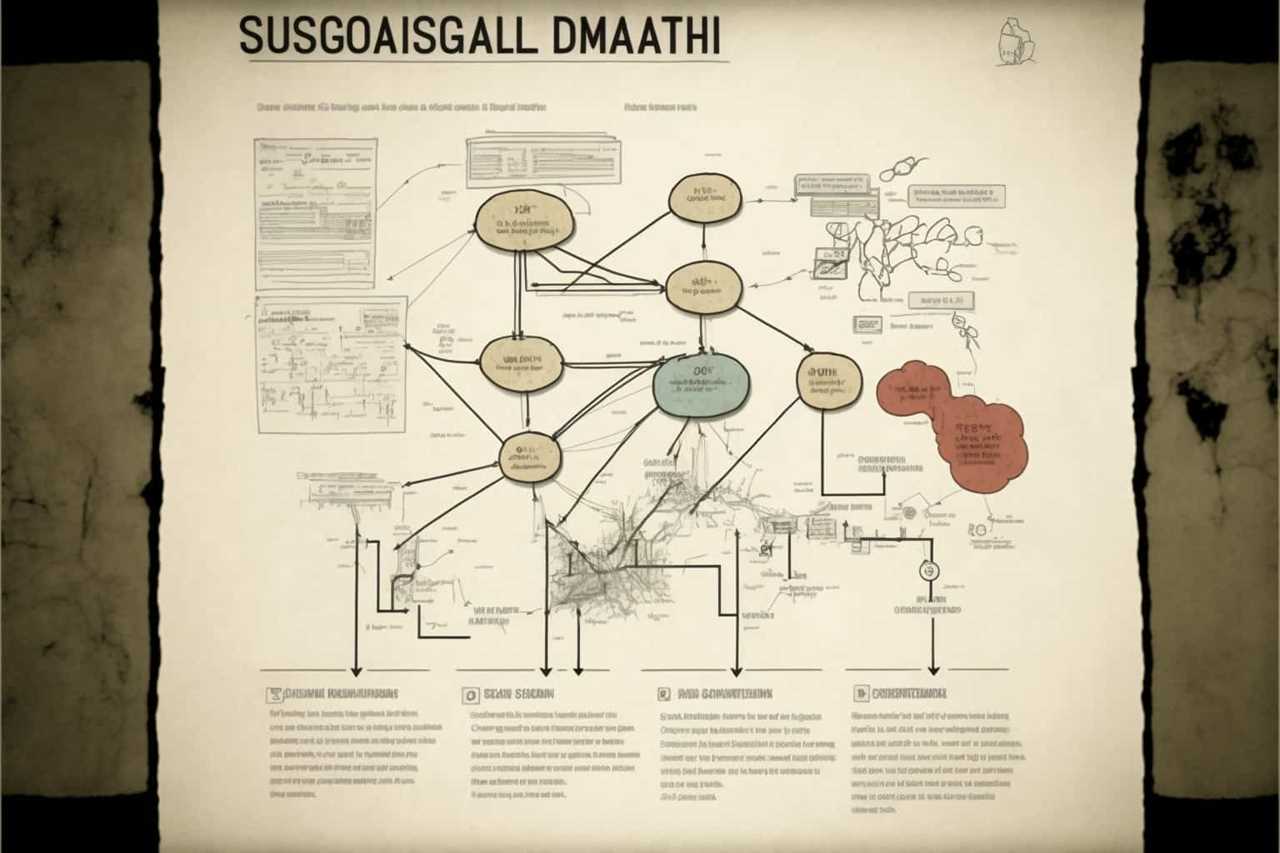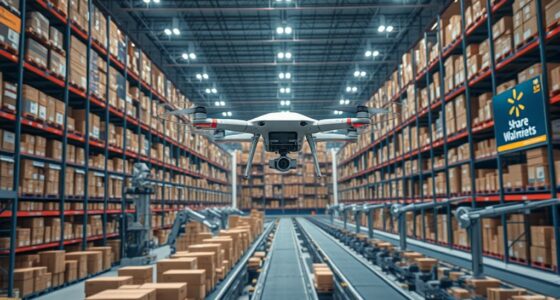As manufacturers, we are on the verge of a groundbreaking era. The integration of artificial intelligence (AI) in our industry holds immense promise, but also presents unique challenges.
In this article, we delve into the intricacies of mastering AI implementation in manufacturing and overcoming the hurdles that lie before us.
From data integration and infrastructure to skilled workforce and investment, we explore the precise details of this journey towards a future where AI is seamlessly woven into the fabric of our operations.
Key Takeaways
- Data integration challenges: There is a presence of data silos within different departments or systems, which hinders the ability to access and analyze information across the organization. This also affects the organization’s ability to fully leverage the power of AI.
- Infrastructure requirements: To successfully implement AI in manufacturing, a robust and reliable network infrastructure is required, along with high-speed internet connections for real-time data transmission. Upgrading hardware resources for sufficient computing power and storage capacity is also necessary, along with implementing effective data management infrastructure.
- Skilled workforce shortage: There is a lack of individuals with specific knowledge and expertise in AI technologies, which highlights the need for comprehensive training programs on AI capabilities. Upskilling existing employees and attracting new talent to the industry is crucial, as well as augmenting human capabilities through automation solutions.
- Financial considerations: Implementing AI in manufacturing requires significant capital expenditure planning and ROI analysis. Upgrading existing infrastructure and implementing new hardware and software systems, training employees, and integrating AI technologies into existing processes are all financial considerations. It is important to anticipate future growth and ensure the scalability of the AI system, while recognizing the long-term benefits of increased efficiency and productivity.
- Security and privacy concerns: Ensuring secure communication between AI systems and manufacturing processes, implementing robust encryption protocols to protect sensitive data, and preventing data breaches and unauthorized access through strong authentication mechanisms are all important security and privacy considerations. Regular vulnerability assessments and penetration testing are necessary to identify and address any security vulnerabilities, while safeguarding the privacy of manufacturing operations.
Lack of Data Integration
We need to address the issue of data integration in order to master AI implementation in manufacturing.

One of the major challenges we face in this regard is the presence of data silos and interoperability issues. Data silos refer to the isolated storage of data within different departments or systems, making it difficult to access and analyze information across the organization. This lack of integration hinders our ability to fully leverage the power of AI in manufacturing processes.
Additionally, interoperability challenges arise when different systems or technologies are unable to communicate or share data effectively. This can lead to inefficiencies, errors, and missed opportunities for optimization.
To overcome these obstacles, we must prioritize the development of robust data integration strategies and technologies that enable seamless data flow and interoperability across the manufacturing ecosystem.
Insufficient Infrastructure
To overcome the challenges of mastering AI implementation in manufacturing, it’s crucial to address the issue of insufficient infrastructure. Inadequate infrastructure can hinder the successful implementation of AI systems and limit their potential benefits.

Here are three key areas that need attention:
-
Network Connectivity: A robust and reliable network infrastructure is essential for the smooth operation of AI systems. High-speed internet connections enable real-time data transmission, facilitating the use of AI algorithms for optimizing processes and reducing downtime.
-
Hardware Resources: Sufficient computing power and storage capacity are fundamental requirements for AI implementation. Upgrading hardware resources, such as servers and sensors, ensures that AI algorithms can process and analyze large volumes of data effectively.
-
Data Management: Effective data management infrastructure is crucial for AI implementation. Implementing data storage and retrieval systems, as well as data cleansing and preprocessing techniques, enables manufacturers to utilize AI algorithms to their full potential, leading to improved process optimization and reduced downtime.

Limited Skilled Workforce
Despite the challenges in mastering AI implementation in manufacturing, a skilled workforce is limited. The integration of artificial intelligence (AI) into manufacturing processes requires individuals with specific knowledge and expertise in AI technologies. However, the current workforce isn’t adequately equipped with these skills, posing a significant obstacle to successful implementation.
To address this issue, companies need to invest in comprehensive training programs that focus on AI capabilities, including machine learning algorithms, data analysis, and programming languages. These programs should be designed to upskill existing employees and attract new talent to the industry.
In addition to training programs, automation solutions can also help mitigate the impact of a limited skilled workforce by augmenting human capabilities and reducing the dependency on specialized skills. By combining training programs and automation solutions, manufacturers can overcome the challenges posed by a limited skilled workforce and effectively implement AI technologies in their operations.
High Initial Investment
One major obstacle that manufacturers face when implementing AI technologies in their operations is the significant initial investment required. This investment includes capital expenditure planning and conducting ROI analysis to ensure the economic viability of the project. Here are three key aspects to consider when dealing with the high initial investment:

- Infrastructure: Upgrading existing infrastructure and implementing new hardware and software systems can be expensive.
- Training and Implementation: Training employees and integrating AI technologies into existing processes require additional resources and time.
- Scalability: Anticipating future growth and ensuring that the AI system can be easily scaled up or down is crucial.
Despite these challenges, manufacturers must recognize the long-term benefits that AI implementation can bring, such as increased efficiency and productivity. However, as we delve further into AI implementation, it’s important to address the security and privacy concerns associated with these technologies.
Security and Privacy Concerns
As we delve into the implementation of AI in manufacturing, it’s crucial to address the security and privacy concerns that arise.
One of the main concerns is ensuring secure communication between AI systems and manufacturing processes. This involves implementing robust encryption protocols to protect sensitive data from unauthorized access or interception.
Additionally, data breach prevention is of utmost importance in safeguarding the privacy of manufacturing operations. Implementing strong authentication mechanisms, such as multi-factor authentication, can help prevent unauthorized access to AI systems and manufacturing data.

Regular vulnerability assessments and penetration testing can also help identify and address potential security gaps.
Frequently Asked Questions
How Can Manufacturers Overcome the Lack of Data Integration in AI Implementation?
To overcome the lack of data integration in AI implementation, we can employ strategies for efficient data utilization. By ensuring proper data collection, integration, and analysis, manufacturers can optimize AI implementation in manufacturing processes.
What Are Some Strategies to Address the Issue of Insufficient Infrastructure for AI Implementation in Manufacturing?
We can overcome the issue of insufficient infrastructure for AI implementation in manufacturing by developing strategies for infrastructure development and leveraging existing resources. These strategies will ensure a smooth integration of AI technologies into manufacturing processes.
How Can Manufacturers Tackle the Challenge of Limited Skilled Workforce in AI Implementation?
To address the skill shortage in AI implementation, manufacturers must bridge the workforce gap. This can be achieved through training programs, partnerships with educational institutions, and attracting talent through competitive compensation and benefits packages.

Are There Any Cost-Effective Ways to Manage the High Initial Investment Required for AI Implementation in Manufacturing?
There are cost-effective ways to manage the high initial investment required for AI implementation in manufacturing. We can explore alternative financing options, such as leasing or partnering with AI solution providers, to mitigate the financial burden.
What Measures Can Be Taken to Address Security and Privacy Concerns Related to AI Implementation in the Manufacturing Sector?
To address security and privacy concerns in AI implementation in manufacturing, we must prioritize data protection and ethical considerations. This involves implementing robust encryption protocols, conducting regular security audits, and ensuring compliance with privacy regulations.
Conclusion
In conclusion, mastering AI implementation in manufacturing requires overcoming several challenges. These challenges include:
- Lack of data integration
- Insufficient infrastructure
- Limited skilled workforce
- High initial investment
- Security and privacy concerns
However, by addressing these obstacles head-on and utilizing parallelism in our approach, we can navigate the technical intricacies of AI implementation with precision and efficiency.

With the right strategies and commitment, the manufacturing industry can harness the full potential of AI to drive innovation and improve productivity.











